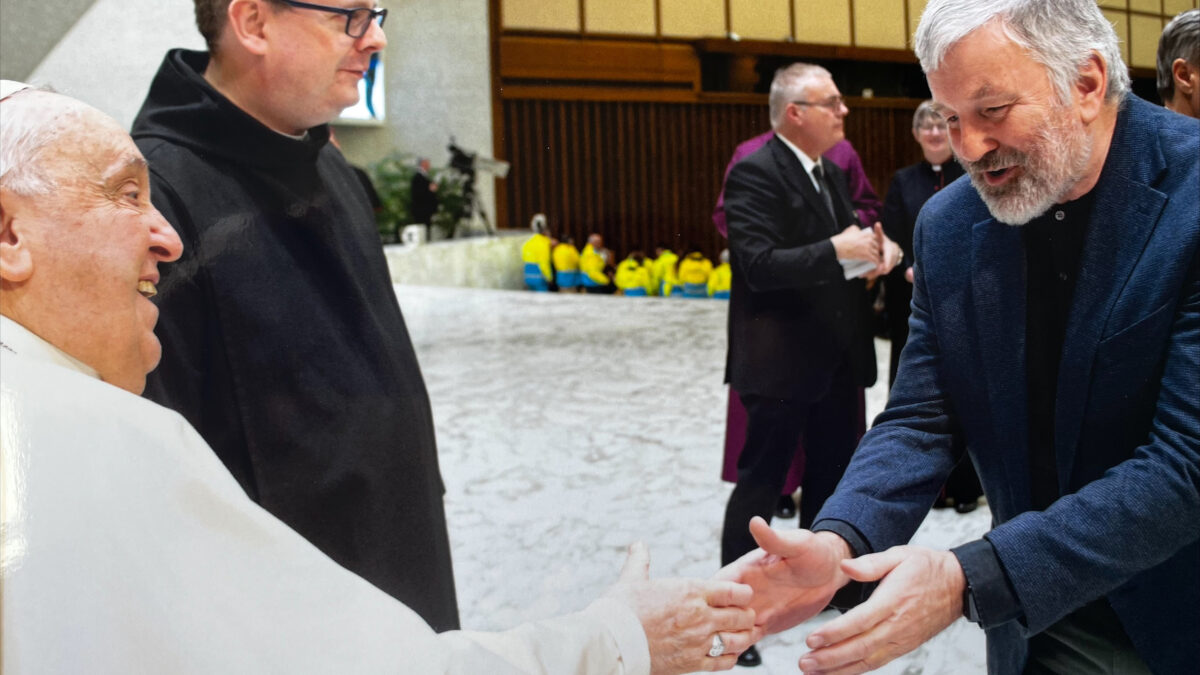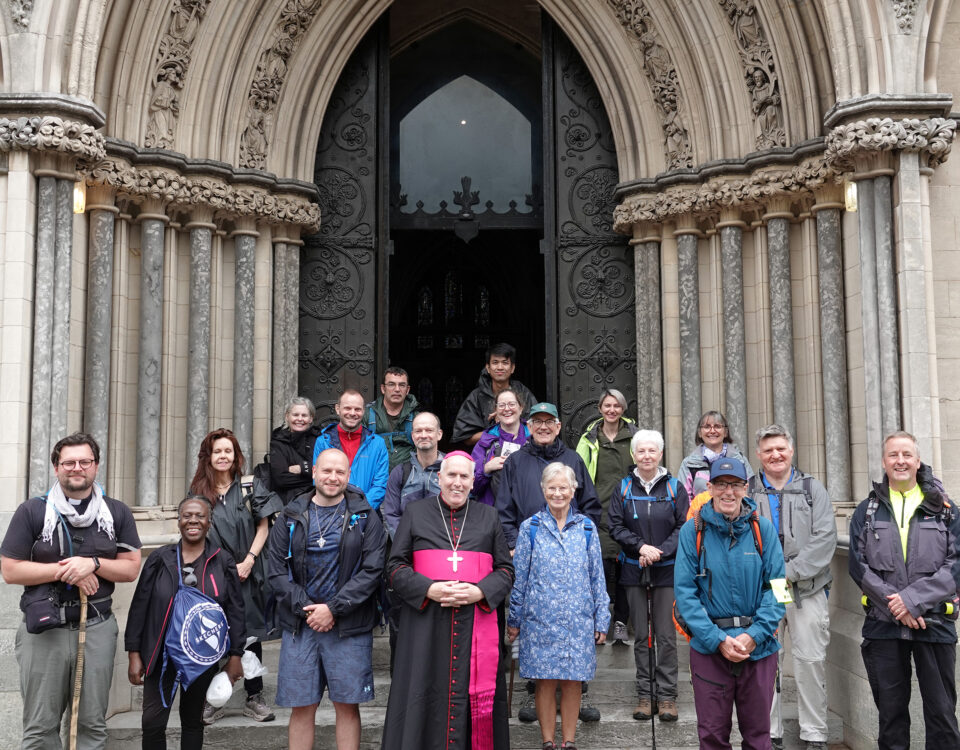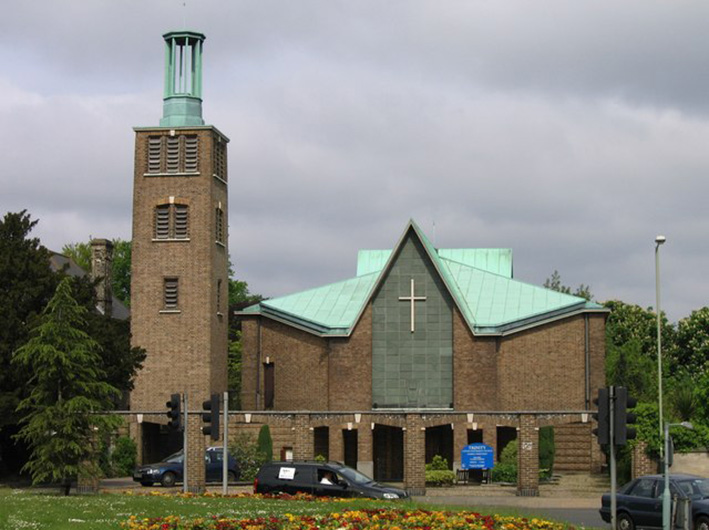
Dereham’s Heart Beats Strong: 100 Years and Beyond
August 11, 2025
St Benet’s, Beccles to Open for Heritage Week
August 13, 2025Unity Corner is a regular feature on Christian Unity by Dr Ian Watson, County Ecumenical Officer for Norfolk and Waveney. His first report highlights the inspiration he draws from Cardinal Walter Kasper.
As County Ecumenical Officer, my work is focused on encouraging collaboration among different Christian denominations. I’m also privileged to be a Catholic member of the Parish of Walsingham and to sit on Bishop Peter’s Commission for Dialogue and Unity. In my ecumenical efforts, I draw inspiration from the insights of Walter Kasper who emphasises that bridging the divide between Christian traditions requires a commitment to dialogue, prayer, reconciled diversity, and above all, the unifying love of Christ.
While it’s true that Christian denominations hold different doctrinal positions, he reminds us not to lose sight of what ultimately binds us together: the unifying love of Christ. At the heart of our faith lies a shared devotion to Jesus, and that, he believes, must always take precedence. His perspective has helped me approach my own role with renewed hope. Rather than being overwhelmed by what divides us, I’m encouraged to focus on what unites us; namely, our commitment to Christ and the values that flow from Him (love, compassion, hope, and service). That’s not to dismiss the importance of our theological differences, they matter, of course, but for me they are secondary.
A wonderful example of this in action is the annual gathering of senior leaders from Churches Together in Norfolk and Waveney. Each year, on the Feast of Christ the King, they come together for fellowship and a public act of ecumenical worship. The next celebration will take place at St John the Baptist Cathedral in Norwich on Sunday 23 November 2025 at 3.30pm – all are warmly invited to attend.
To centre on the unifying love of Christ there are several things Kasper says we need. He highlights the first in Harvesting the Fruits (2009), where he writes: “Dialogue is the path to unity and the heart of ecumenical engagement.” That insight underpins everything I do to encourage collaboration across the different Christian traditions in Norfolk and Waveney. In a region so rich in denominational diversity, dialogue is essential if we are to overcome division and misunderstanding.
Kasper emphasises the importance of prayer as the second thing we need. In That They May All Be One (2004), he warns: “Without prayer, ecumenical dialogue can become merely an intellectual exercise, devoid of the transformative power of the Holy Spirit.” This idea of spiritual ecumenism (joining together in prayer led by the Spirit) is central to my work. In my experience, ecumenical prayer gatherings help Christians not only grow in unity but also deepen their spiritual lives through shared encounter with God.
It is important to remember that this is not a call for uniformity. In The Church: A Mystery (2003), Kasper reminds us that the Church is not merely a structure but a “dynamic community called to unity in diversity.” This insight affirms that Christian unity does not mean we should be the same. We must resist the temptation to water down our treasured traditions. Instead, we should embrace ‘reconciled diversity,’ an idea also held by the late and dear Pope Francis who said: “True unity is reconciled diversity – not sameness, but solidarity rooted in a rich diversity and love.” In other words, we are ‘One but not the Same.’
To achieve this, Kasper champions humility and openness in our ecumenical efforts. He calls us to listen attentively and to learn from each other’s traditions – a practice sometimes referred to as Receptive Ecumenism. I’ve seen this in action through local Churches Together groups where mutual respect allows differences to be seen not as obstacles, but as gifts to be received and appreciated. Indeed, in my case I can honestly say that the extensive exposure to other traditions has enriched my own Catholic faith not diluted it.
Finally, Kasper’s commitment to social justice is also a part of his vision for unity. He teaches that Christians working together in service offer a living witness to Christ’s love. This resonates deeply. Indeed, the most impactive ecumenical work I’ve encountered involves Christians of different traditions serving side by side to address poverty, injustice and the needs of the marginalised.
Cardinal Walter Kasper continues to be a powerful influence on my ecumenical ministry. His call to put Jesus at the centre through dialogue, prayer, humility, and joint service inspires how I encourage unity among Christians. I sincerely believe that if we all take his teaching to heart, we can move together in love and hope toward the unity that Christ prayed for; a unity that truly reflects His heart for His Church and for the world.
Note
Walter Kasper is a notable German cardinal and theologian. He served in various academic and ecclesiastical roles, including as president of the Pontifical Council (now Dicastery) for Promoting Christian Unity, a role he held until his retirement in 2010.
Photo: Dr Ian Watson meeting Pope Francis at the NWCT pilgrimage to Rome. Courtesy of Vatican Media – January 2025




